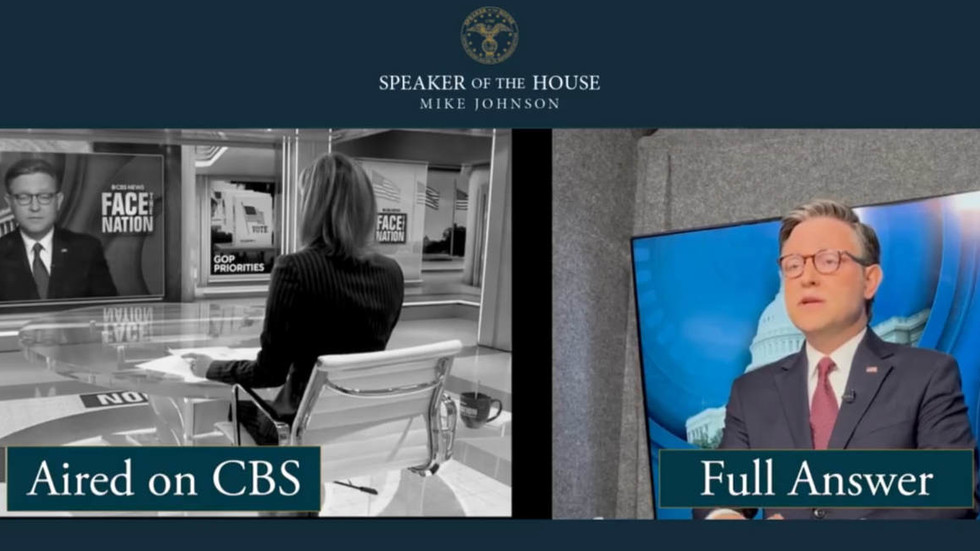U.S. House Representatives Speaker Mike Johnson has raised serious allegations against CBS, claiming that the network engaged in selective editing during his recent interview on the program “Face the Nation.” Johnson asserted that CBS altered the context of his statements, which he argued is a significant breach of journalistic standards. To support his claims, he took to social media, sharing both the edited version aired by CBS and the unedited original footage. This move aimed not only to highlight what he viewed as manipulative reporting but also to rally public support and scrutiny against the network’s editing practices.
Johnson’s discontent centers around an instance where he recounted a visit to North Carolina after Hurricane Helene. He expressed that local victims articulated their frustrations about the federal government failing to provide essential resources nearly two weeks post-disaster. CBS, he contended, completely omitted these crucial sentiments, instead only showcasing a portion of his statement that lacked the full context. By leaving out his observations about the dire situation faced by the hurricane victims, CBS created a narrative that he believes misrepresented the reality on the ground.
Adding to the controversy, Johnson presented another example of what he perceives as misrepresentation in CBS’s coverage, specifically around voting integrity issues. He accused the network of removing a significant portion of his commentary regarding the Biden administration’s legal actions against Virginia Governor Glenn Youngkin, who was attempting to clean up voter rolls. Johnson claimed this omission stripped his statement of its critical context regarding illegal voting registration, thereby misleading viewers about the administration’s actions and intentions. This highlighted his concern over perceived government overreach in electoral matters.
In a further instance of selective editing, Johnson pointed out that CBS cut an important segment of his remarks related to voter integrity and the influx of illegal immigration. He noted that the network reduced his answer on the SAVE Act—which aims to ensure only citizens can participate in elections— to a single opening statement, thereby undermining the substance of his argument. This, he argued, diverted the discussion from immediate concerns about election integrity, reinforcing his view that CBS was not accurately representing his positions.
The fallout from Johnson’s revelations has been substantial. Reports indicate that he is now committed to avoiding non-live interviews with CBS moving forward, expressing his deep dissatisfaction with the editing process. This incident has not only drawn attention to Johnson’s perspective but has also revived critiques of CBS’s integrity as a news organization. The network has been previously scrutinized for its production choices, including a notably controversial episode of “60 Minutes” featuring Vice President Kamala Harris, which aired conflicting responses to the same question.
As media scrutiny continues, Johnson’s accusations resonate amidst a broader discourse on journalistic ethics and the responsibilities of news outlets. Former President Donald Trump has even joined the chorus of criticism against CBS, denouncing the network’s treatment of Harris during her interview as deceitful. The ongoing debate raises implications about the media’s role in shaping public perception, as CBS has yet to address the controversy by releasing unedited footage. As the dialogue unfolds, the integrity of media representations remains a pivotal issue, accentuating questions of trust in contemporary journalism.

